RWANDA: Forgiveness is a power given by God
How the Church is helping to re-integrate those imprisoned for genocide against the Tutsis
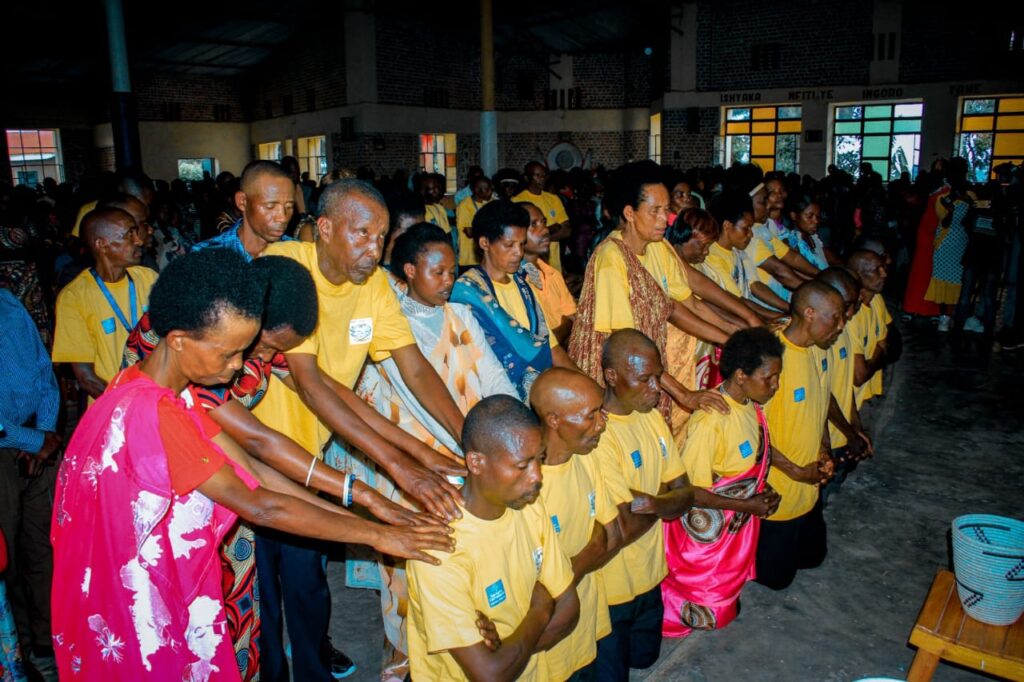
7 April was declared International Day of Reflection on the 1994 Genocide against the Tutsis in Rwanda. Twenty-nine years after these tragic events (7 April – 15 July 1994), these prisoners who are still incarcerated are those who received the heaviest sentences. Fr Théogène NGOBOKA, Director of the Justice and Peace Commission of Cyangugu, is carrying out pastoral work in Rusizi prison, which has 3,850 inmates, of whom 1,300 are men incarcerated for genocide.
During her trip to Rwanda last December, Agnès Sebaux from the communications office of Aid to the Church in Need (ACN) interviewed him.
Can you remind us how these people came to be sentenced?
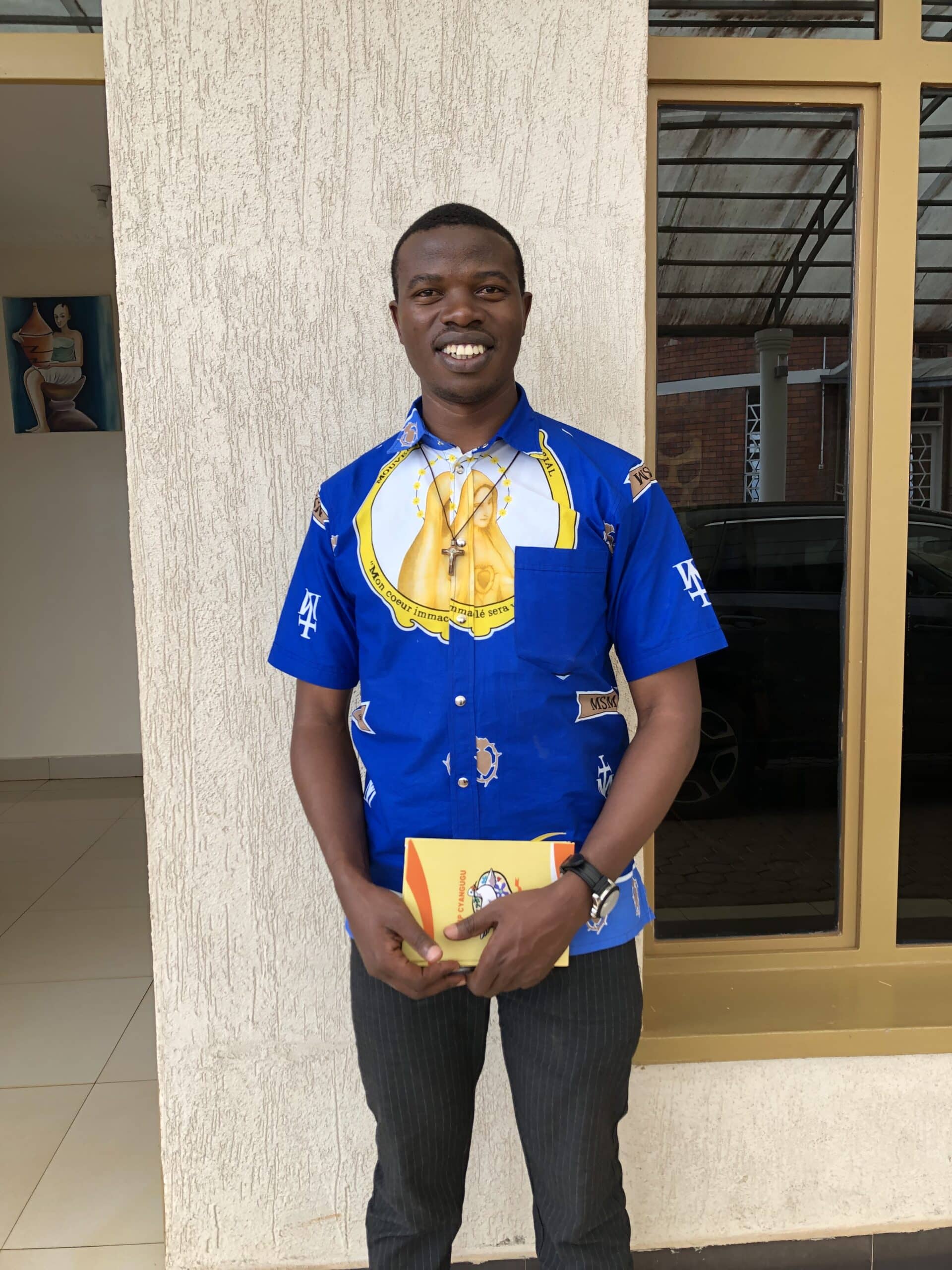 It was the “Gacaca” people’s courts which judged them. In Kinyarwanda Gacaca means “soft grass”, that is, the place where you gather. Originally the Gacaca made it possible to deal with differences between neighbours or in the family. It consisted of a village assembly presided over by elders where everyone could ask to speak. These courts were revived to speed up the necessary cases of some hundreds of thousands of people accused of participating in the genocide.
It was the “Gacaca” people’s courts which judged them. In Kinyarwanda Gacaca means “soft grass”, that is, the place where you gather. Originally the Gacaca made it possible to deal with differences between neighbours or in the family. It consisted of a village assembly presided over by elders where everyone could ask to speak. These courts were revived to speed up the necessary cases of some hundreds of thousands of people accused of participating in the genocide.
The men who are still in prison 29 years later are those who didn’t want to confess and recognise the incriminating facts or those who carried out crimes in several areas and whose sentences were combined or again those who were the preachers of the genocide and who gave the orders.
You are the chaplain of this prison. What does your mission consist of?
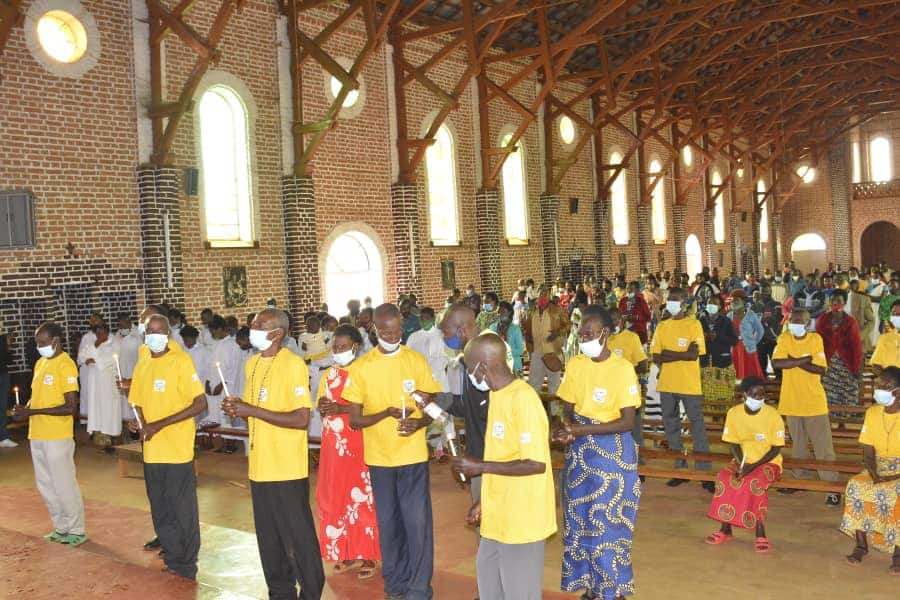
I have a permanent right to visit. With volunteers who work in the Justice and Peace Commission, I help the inmates who are soon to be let out to prepare for their release. The fact is, you may have served your sentence as regards the law, but society continues to judge you. I explain to the inmates that it’s important and necessary to be reconciled with the community.
How do you help them?
It’s really a process of accompanying the prisoners but also the community into which they are going to return and settle to travel together towards reconciliation. First of all, we prepare the prisoners by raising their awareness of the need to ask forgiveness. “The community still has something against you. Are you prepared to acknowledge your actions, and to ask forgiveness of the community? We are committing ourselves to serve as intermediaries between you and the survivors.” If they are ready for this step, they write a letter to all the people from whom they want to ask forgiveness. They commit to changing their behaviour and expressing their desire to live in harmony with the community. The prison management signs these letters to authenticate them.
These letters are then passed on to the survivor families by the priests or the volunteers from the Justice and Peace Commissions of the parishes concerned. These commit to explaining the step which the prisoner has taken. A dialogue begins in order to check the validity of the statements. So, there are some letters which come with all the information, while others are partial…the victims mention other facts. The commission commits to noting all this missing information and taking it back to the prisoner. We serve as intermediaries to establish the truth.
And once the truth is established, what happens?
If the survivor confirms that the letter is truly complete, we suggest to them that they go to the prison to talk with the prisoner. So, one day a month we organise these visits with the prison social service. We are still mediators and are present at these meetings. We facilitate the conversation. The emotions are powerful.
Then, if forgiveness is given and accepted, we have to extend it to the members of the family. Forgiveness must relate to the family, both the family of the survivor and the family of the prisoner.
We likewise work at the heart of the community. On the one hand, we organise sessions with the survivors, and on the other with the families of the prisoners. Then we bring them together. Most of these people are believers, and faith plays a key role in the process of forgiveness. All our meetings take place around the Word of God where we find models of forgiveness. We pray and discuss the texts which show how much forgiveness sets you free. We also invite people who have already been through this process of reconciliation to give testimony. That encourages the others. So, when the prisoners are let out, they arrive in a community which has already been prepared.
It’s a long process…
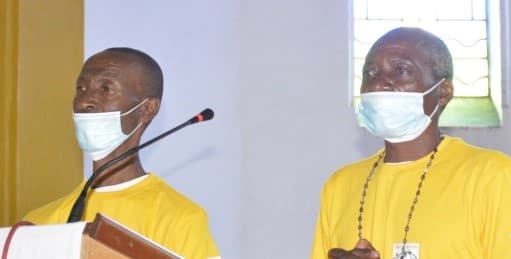
Herman H. and Gaston N. from Mibirizi. During the celebration, the former perpetrator and his victim testify before the assembly about their process of reconciliation.
Yes, that’s why we begin three years before the release. And after they are released, that’s not the end. We commit to journeying with them for at least six months to allow the prisoners and the victims to overcome their fear. We organise meetings around the Word of God, community projects allowing them to work together in a field, or on a building site…We ask them to visit each other. Reconciliation is not automatic. Trust must be built. It’s a long journey.
We also organise pilgrimages to Kibeho (site of an apparition of the Virgin Mary) where we invite small groups from different parishes. Each one talks about their journey. We discuss. Everyone is supported on their journey of forgiveness.
At the end of six months, the Justice and Peace Commission tries to evaluate the state of the reconciliation. The volunteers who are accompanying them give their opinion on the process and on the common activities carried out. If the process has been well done, the church organises an official day of unity and reconciliation. The prisoners are welcomed into the church and officially ask forgiveness. They publicly confess what they have done and ask forgiveness. The victims also publicity offer their forgiveness.
What difficulties do you come across?
The process demands enormous efforts. The wounds are still sensitive, even 29 years on. Some people don’t want to open these wounds when they are beginning to heal. For this reconciliation to have a chance of succeeding, the victim must be convinced of the sincerity of the request for forgiveness and that all the deeds committed have been revealed. Some victims still can’t mourn their loved ones because they don’t know where their bodies are. They are waiting on their tormentor to discover the scene of his crimes.
For the former prisoner, it’s also very difficult. Some witness to us that “the outside is worse than the prison: my wife has made a new life with another man and I’m afraid to run into members of the family that I’ve killed. How do I go to the church where I have committed murders?”
Another difficulty lies in the fact that the rest of the family does not want to extend forgiveness. You have to respect each one’s rhythm and accompany them on this journey.
Some prisoners do not acknowledge the crimes with which they have been charged. Is there a presumption of innocence?
The Gacaca courts helped a lot to convict the majority of people who participated in the genocide, but the people’s courts also had their limits. When there wasn’t enough evidence, even if you pleaded not guilty, you were sometimes still convicted. In our work we meet certain prisoners who have been unjustly accused and imprisoned. For example, some prisoners admit to having pillaged but not killed. Some survivors, in the heat of emotion or out of a desire for vengeance, have made false accusations. But once sentence has been pronounced, it is difficult to go back.
Have you accompanied some of these prisoners to prepare for their release?
Yes, it has happened. I explained to you that reconciliation is based on the truth, and on the request for and acceptance of forgiveness. Each case is individual. We have to listen, discern and try to discover the truth, what really happened.
Can you tell me about one of these reconciliations?

Yes, for example, that of Herman H. and Gaston N. from Mibirizi. Herman was responsible for the cell during the genocide perpetrated against the Tutsis and killed a lot of people. Having acknowledged in front of the Gacaca court his significant responsibility in the genocide, he had his initial sentence of death commuted to one of 25 years in prison. This is what he testified during the official day of unity and reconciliation:
“When I came out, I had no sense of being alive anymore. I was deranged. I couldn’t go to Mass or to the market. I simply wanted to stay shut up in my home. If I’d been given the choice, I’d have preferred to go back to prison instead of living like that. Fr Clément, my parish priest, made it known that he wanted to meet the released prisoners and the members of their families. He came to my house. I began with him this process which wasn’t easy, but he stayed at my side until I could meet Gaston N, the head of the big family which I had exterminated. I asked for his forgiveness, and he forgave me.”
From his side, Gaston N. has not forgotten his Calvary and all Herman H.’s tortures. He still has some scars. For a long time, he was in a place of hatred mixed with trauma. It’s thanks to the accompaniment of the psychosocial facilitators of the Mbirizi Justice and Peace Commission that he was able to undertake the process of reconciliation. He said that his heart has been truly set free and that he has sincerely forgiven Herman. Now they live well. There is no longer any prejudice or suspicion between them.
Do you think that the process of reconciliation would be possible without God’s help?
No, forgiveness is a miracle, a gift of God…when you hear about all the atrocities committed…forgiveness is a power given by God.
In 2023, the commemoration of the genocide coincides with the celebration of Good Friday. Is that a sign for you?
Yes, certainly! It’s a telling sign that God is with us in these painful moments. During the genocide, many Rwandans who were strong believers asked where God was. Above all, there was a well-known Rwandan adage saying: “God spends his day in other countries and always comes back to spend the night in Rwanda!” Many still ask the question about the silence of God in the face of their suffering. The answer to this question can be found in the mystery which we celebrate on Good Friday: God was with His suffering children, his persecuted righteous ones, a sign of the victory of life over death, a sign of the hope of a better future in Jesus Christ.
During the year 2021, in the Diocese of Cyangugu, 154 prisoners were accompanied and brought together with 98 genocide survivor families. ACN supports the work of the national Justice and Peace Commission in financing a training programme for 120 priests and male and female Religious in three dioceses to enable them to understand trauma, the techniques of active listening and psychospiritual accompaniment for community resilience.
Related
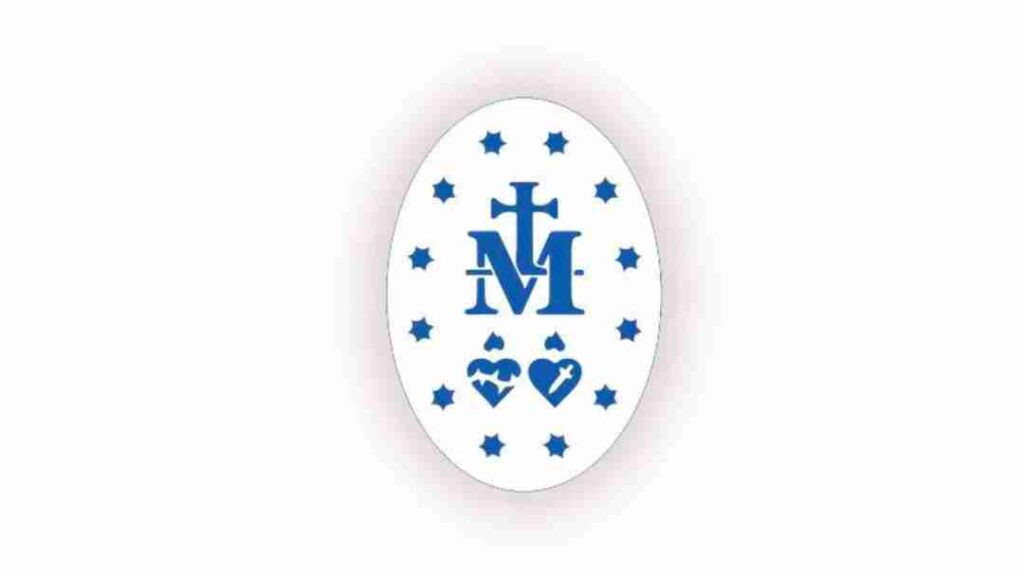
Thy will be done
Albert Cortina
17 April, 2025
35 min
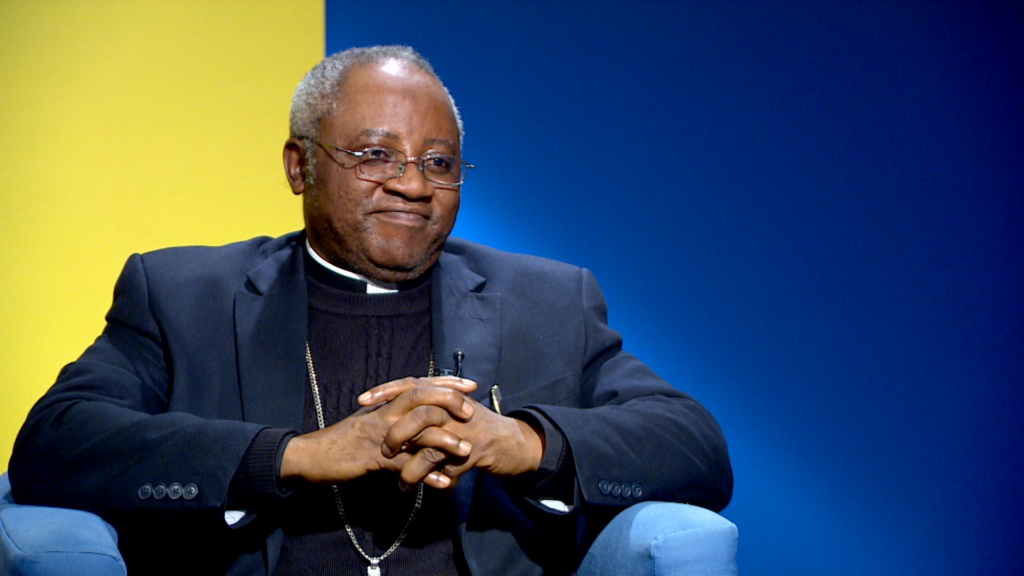
Despite hardships, Christianity is growing “astronomically” in northern Nigeria
Ayuda a la Iglesia Necesitada
10 April, 2025
3 min
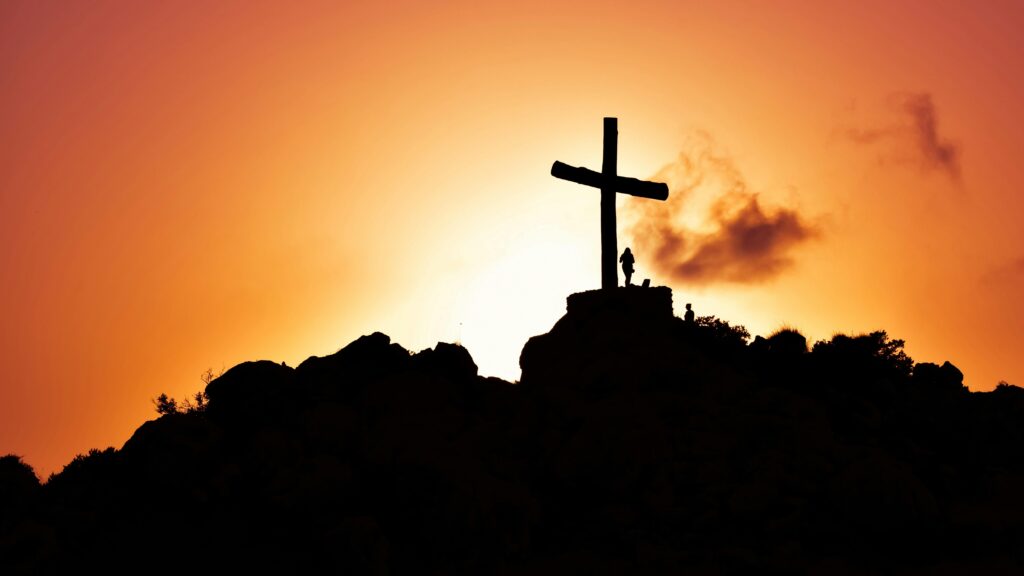
“Christianity, a Powerful Engine of Social Transformation”
Exaudi Staff
09 April, 2025
3 min
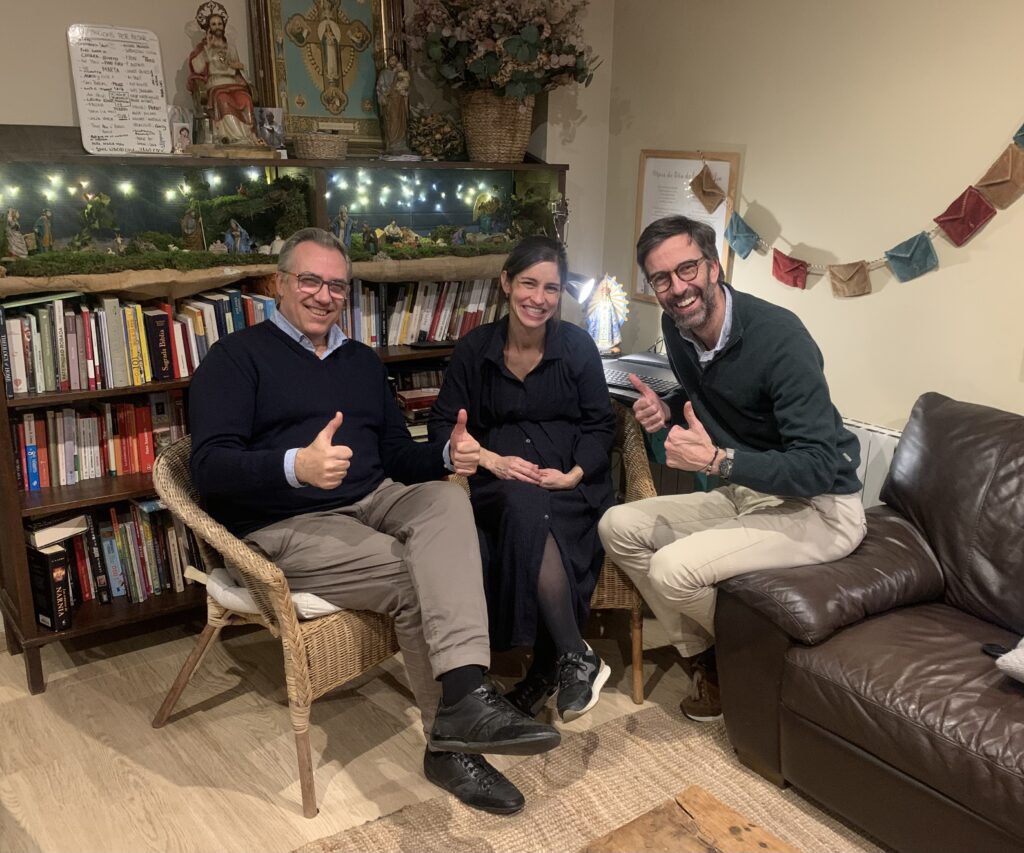
Let God be God
Albert Cortina
11 March, 2025
25 min
 (EN)
(EN)
 (ES)
(ES)
 (IT)
(IT)

